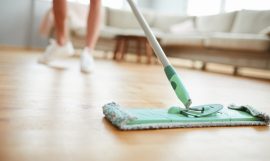The WHO estimates that by 2050, 50% of the world’s population will be affected by at least one allergy. It could be whether triggered by contact (allergic or urticarial reaction), food or an autoimmune reaction. Allergies are a real problem for sufferers, who must constantly check the ingredients of the products they use or consume. Allergies have become a real public health issue!
How do we differentiate between a skin irritation, allergic dermatitis and atopic skin?
Atopic dermatitis often begins in early infancy. Although it is certainly an allergic eczematous reaction, it is often “passed on” by parents. There is a parent carrier of eczema, asthma or hay fever in approximately 70% of cases. This type of eczema can be treated to prevent recurrence. However, the allergic predisposition will remain, and researchers have also linked atopic eczema in infancy to the onset of asthma after the age of two.
A skin irritation is a reaction to contact with a product which is unsuitable for your skin type. Redness and/or itching is localised within the area which came into contact with the product concerned and heals quickly once you are no longer in contact with it. Acute urticaria (hives) is actually quite a common condition and contrary to popular belief, it is not always allergy-related – far from it.
Allergic dermatitis (urticaria or eczema) is a disproportionate reaction by the body to an allergen. Allergic dermatitis differs from an irritation in that it spreads well beyond the contact area. The severity of the irritation is irrelevant. It can be treated with antihistamines. As with any allergy, the best way to avoid a future reaction is to avoid the allergen. It is possible to identify the allergen responsible through skin tests carried out by an allergist. In most cases of allergic dermatitis, perfumes (26 molecules have been identified) but also preservatives (including the infamous parabens) and certain excipients are responsible for the contact allergy.
Irritant ingredients and allergens in your cleaning products
Whatever the cause of skin reactions, it doesn’t make them any less unpleasant or even debilitating. Often, they are also held in disregard by society. In France, allergens must be identified on cosmetic products. Also on food products in accordance with the decree of 17 April 2015, which entered into force on 1 July 2015. Allergens also have to be clearly displayed on cleaning products. However laundry detergents (mainly) may also be formulated with potential irritants like optical brighteners, preservatives from the isothiazolinone (MIT) family and alcohol.
For manufacturers, this means rethinking the composition of their products. Simplifying them, reducing or removing perfumes completely and avoiding sensitisers like glycol (PEG), alcohol, enzymes, chlorine and certain preservatives, such as those in the thiazolinone family. In parallel, laboratories have been working to come up with solutions enabling manufacturers to offer products which still feel and smell pleasant.
The term “hypoallergenic” is used to describe a product which has been specially formulated to minimise the risks of allergies related to its use. To be able to use this term on product packaging, manufacturers must carry out a standard test to verify tolerance.
Hypoallergenic products come to the aid of sensitive skin
To meet the needs of the most sensitive skin, like baby skin, and of all those who suffer from allergies, including respiratory allergies, Etamine du Lys has designed and developed a range of hypoallergenic products. Where other brands, including ecological and approved brands, simply remove perfumes so that they can label their products “Allergen-free”, (albeit without reducing the price or abstaining from using irritants like MIT), Etamine du Lys goes a step further. We formulate products for your home which are not only suitable for the most sensitive skin, but which also smell nice and are always pleasant to use.
The Etamine du Lys hypoallergenic range features two washing-up liquids and a liquid laundry detergent, essential for cleaning your laundry and your home.




